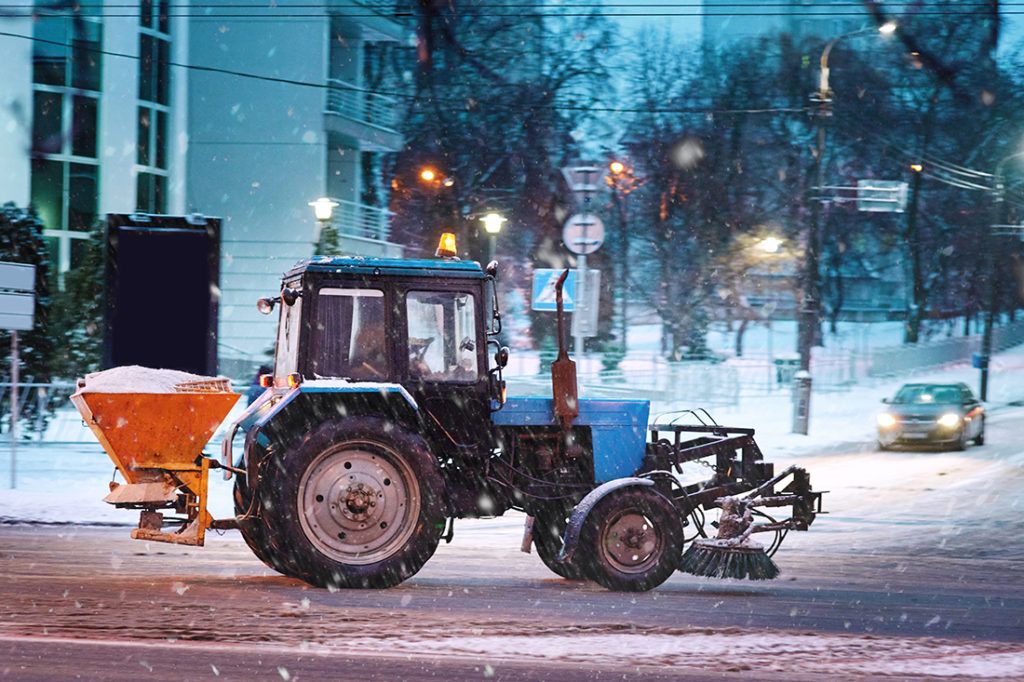A Voice of Experience from Paving Plus in Christiansburg, Virginia
It is the winter season and the perfect time to talk about the effects of snow, ice, and salt on asphalt pavement. Paving Plus in Christiansburg, Virginia, is the region’s voice of experience when it comes to asphalt. So we do know a thing or two about the often-damaging effects of winter weather on the surfaces we install and repair.
Whether you own a home or operate a business, you hold high expectations for the asphalt pavement on your property. General curb appeal alone says that a smooth asphalt surface is more welcoming than a cracked or broken one. We understand this totally! However, the weather in Virginia can have its extremes. Winter, especially, can wreak havoc with the asphalt surfaces of driveways and parking lots.
Knowing this, the pros at Paving Plus decided to take a more in-depth look at this subject.
We’ll be up-front and admit that we are not the only people interested in this. Not to bore you, but there is science to support our concerns. If you want to see some of the science for yourself, check this study published by The Asphalt Institute.
Snow Sure Looks Pretty, But…
We might describe wintertime snow as being pretty, inspiring, and even beautiful. But the pretty snow can have some rather damaging effects on asphalt. Beneath that pretty carpet of white are the molecules of water just waiting for the right time to melt. Under the right circumstances, the water from melting snow can seep its way past the asphalt surface.
Ideally, most home and business owners seek to keep asphalt pavements clear of snow and ice. This is when many bring out the snow shovels or hire a plow truck to move the snow. Putting snow out of the way does help to minimize the standing effect of water on asphalt surfaces.
Having a clear pavement is safer to walk and drive on and it is less likely to suffer from water seepage. A sealed asphalt pavement maintained in good-to-excellent condition may be less of a worry. But some amount of water seepage from melting snow is unavoidable.
With this in mind, we might understand why so many park and recreation areas close during the winter. Municipal and rural areas may only devote a limited part of their budget to asphalt maintenance. It can be impractical to clear many miles of snow- and ice-covered surfaces.
“It’s Like a Skating Rink” – The Addition of Ice May Not Be Very Nice
Wintry storms often add ice into the mix, which can also be detrimental to asphalt pavements. We said that well-maintained asphalt surfaces have less to worry about. When we add ice, though, things can get very disturbing, indeed.
As much as we might like a good hockey game, dealing with an icy asphalt pavement is not much fun. Like snow, we expect that icy surfaces will melt. So we anticipate the same melting water possibly seeping into the surface. Ice conditions also bring out other heavy-hitters; namely, ice choppers and rock salt. We cringe.
Chopping away at ice may be an effective way to clear it, but the chipping can also disturb and possibly pull up chunks of asphalt. This lifting occurs most on unsealed asphalt. All the banging and cracking that happens on the ice can also crack into the hardened asphalt. Again, this surface disturbance is how the water gets inside.
Salt Helps But Can Wash Away Pavement Integrity
Another easy fix for snow and ice is to apply rock salt or some other type of melting agent. As studies show, not all melting agents are created equally. Some have more caustic elements than others and can eat away at the paved asphalt surface. This pitting from salt puts another chink in the armor.
When enough water seepage occurs under the surface, it washes away the smooth and solid asphalt surface. It also undermines the substrata of dirt, stone, and other materials below. The water can wash away the integrity of the asphalt pavement.
Now, with proper drainage, water from melting ice and snow usually has a place to go. There can be places where the water sits and gathers without draining. This pooling water situation below the asphalt surface causes cracking and potholes to form.
Warm Words from Paving Plus, Installers of Quality Asphalt
Paving Plus knows that quality asphalt pavement can take a licking, as well as a few scrapes. Asphalt is one of the most durable paving surfaces on the planet! Providing our residential and commercial clients with quality asphalt is what brings us to work every day.
We enjoy seeing the smooth results of a finished pavement, and trust you also enjoy keeping it looking its best. May we suggest keeping our number handy whenever you need installation of, or repairs on, your asphalt pavement. Stay tuned to our blog for more informative topics from Paving Plus and our wonderful world of asphalt paving.
Contact Paving Plus, in Christiansburg, Virginia, at (540) 731-3000. Follow us on Facebook for more on our projects, including more on the effects of snow, ice, and salt on asphalt pavement.





